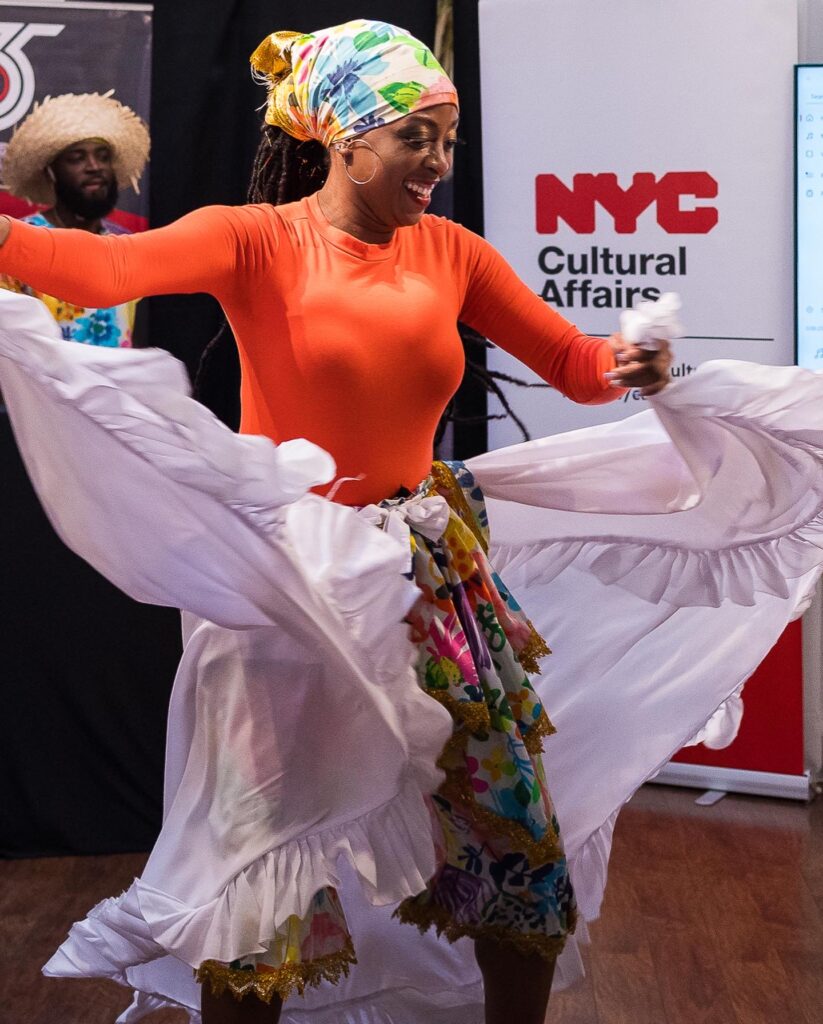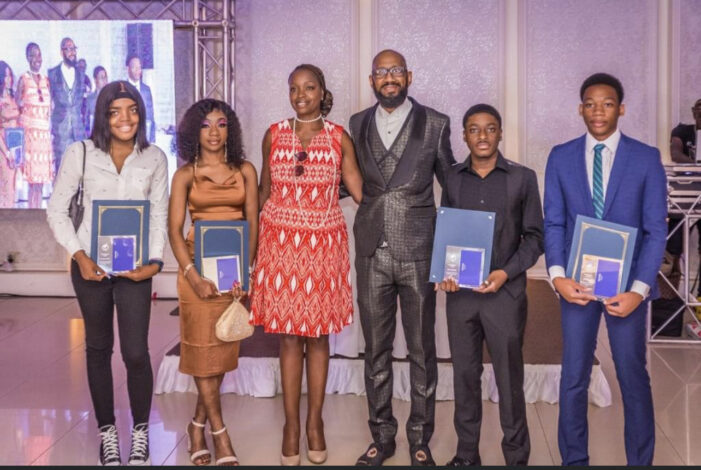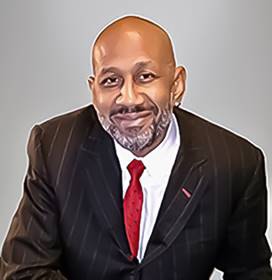Photos courtesy of Sesame Flyers
By Linda Nwoke
Listen to Curtis Nelson’s Interview with People, Power & Politics:
Sesame Flyers International, Inc., is 40 years old, a milestone that reflects not only the passage of time but also the enduring commitment of its founders to preserving and celebrating the cultural identity of Trinidadian immigrants in the United States.
Joseph Charles and other visionaries, like Winston Munroe and his family, founded Sesame Flyers out of a profound desire to bridge the gap between the old world and the new. These were some of the explanations given by the organization’s Executive Director, Curtis Nelson, in an interview with our Editor-in-Chief, Pearl Phillip, and host of the People, Power & Politics Radio Show and Podcast.
He explained that as immigrants from Trinidad settled in New York, many gradually lost touch with their cultural roots. Such cultural drift, especially among the younger generation, sparked the founders’ determination to ensure that the heritage and traditions of Trinidad remained an integral part of their lives.
He further explained that the name “Sesame” is rooted in the memories of the founders’ childhood, traced back to Trinidad. It was the name of a dead-end street where local children played and was affectionately dubbed “Sesame Street.” Upon migrating to the United States, the founders aimed to recreate the cherished space. They named their organization “Sesame Street Flyers” due to frequent flights between Trinidad and New York. However, the iconic “Sesame Street” was already an established entity, prompting them to drop the “Street” and become “Sesame Flyers International.”
“Sesame started in Pittsburgh, Trinidad. It was a dead-end street all the kids used to play on, and they nicknamed it Sesame Street. And so, when the founders moved from Trinidad, they wanted to recreate that space and call it Sesame Street Flyers because they flew back and forth between Trinidad and New York,” says Nelson.
Reaction to Donation by New York City Department of Cultural Affairs
In a significant milestone for Sesame Flyers International, the organization was granted $2 million in capital investments from the New York City Department of Cultural Affairs. The grant is their first city-funded capital project and makes way for a substantial renovation and expansion of their facility in Flatbush, Brooklyn. The announcement caused excitement and marked a pivotal moment for the organization’s growth and cultural impact.

According to Nelson, “We purchased a building back in 1989, a 1931 building on Church Avenue, right in the heart of East Flatbush and now Little Caribbean. But the building, the heart of the first community center we ran and our headquarters, is in disrepair, and it needed some upgrading.”
The 2 million investments will continue to contribute to the cultural landscape of Brooklyn by increasing the organization’s reach in Community Programs. The organization operates beyond its Church Avenue location. Over the years, the organization has effectively utilized city funding to operate community centers across East Flatbush and Canarsie.
They currently manage two Beacon Schools in Winthrop and Bildersee Beacon campuses and have a presence at PS 219 and Clarkson Compass School. With contracts from the Department of Youth and Community Development, New York State Children and Families, and support from the New York City Department of Cultural Affairs, they have also established a foster care prevention program with the Administration for Children’s Services. Sesame Flyers’ extensive community engagement remains a testament to their commitment to serving the youth and families of the region.
Plans for the Art Cultural Hub Project in Brooklyn
Nelson revealed that the expansion project will enhance its community offerings regarding the Sesame Flyers Building project. He explained that the existing two-story building on Church Avenue would undergo a significant transformation, with a full basement and a third floor, to create more usable space for a wide range of community activities, including meetings, office use, steelpan, and dance practices. According to him, the goal is to provide a welcoming and flexible hub for various organizations to bolster their community programming.
“The building had some conditions that needed upgrading so that we could be safe and meet modern requirements. We look forward to opening up the community space to more organizations to have free and usable space within the community to support their programming,” he added.
Impact of the Project on the Identity and Sense of Community for Residents
While there are numerous advantages associated with the expansion project, one significant impact is that it will bridge the cultural gap in East Flatbush. In this location, specific Caribbean cultural centers are scarce.
SFI will continue to serve as a beacon of Caribbean culture with dedicated ambassadors who will continue strengthening community connections with those who appreciate celebrating their Caribbean heritage.
Nelson explained that beyond their core work, they’ve cultivated strong partnerships with other cultural organizations in the area, particularly those focused on Caribbean culture. Over the years, their notable consistent success in Labor Day costume productions on Eastern Parkway has solidified their place as an integral part of the community, fostering cultural pride and connections. “Every year, we have a record of being one of the most successful mass bands in New York City, having gotten the title for Labor Day costumes for 13 years,” he responds.
Strategies for Getting Capital Money
When asked how they secured the capital funding for the organization, the executive director responds that they aim to set an example and encourage other organizations to secure capital funding for community development. He insisted that their deep roots in East Flatbush positioned them as a committed and unwavering contributor to the community’s growth.
In addition, they honed their ability to manage city contracts and navigate the city procurement process, making them a valuable resource for capital investments. In his view, their success demonstrates the significance of qualifications and dedication in accessing such funding sources.

“Our founders had the foresight to purchase a property, giving us roots in the community,” he explains. “We can write and manage city contracts, know how to navigate the city procurement process, and have the ability to apply for these funding sources; it needs a considerable number of qualifications,” says Nelson.
Notably, their process for securing funding includes demonstrating a reputable track record of financial management and having evidence of delivering quality programs using previous city contracts. He stated that their ability to manage city funds and deliver commitments inspired confidence among funding sources. They also showcased their commitment to bank loans, proving their investment in the project. They also engaged a qualified architect who developed a viable plan, which was crucial in conveying their vision to the city’s Department of Cultural Affairs for approval, thus paving the way for their funding success.
Funding, Long-Term Sustainability, and Socio-economic Vibrancy of the Caribbean Community in Brooklyn
The Executive Director insists that property capitalism, or ownership, remains a cornerstone of the economy. The funding solidifies their deep community roots and commitment. It will enable them to expand their capacity to serve the neighborhood and set a valuable example for other organizations on acquiring and investing in property with city support.
In advice to other Caribbean cultural organizations, he related their growth to their unwavering commitment to expanding their capacity, such as bringing in staff and securing funding, with influential figures like Assemblyman Nick Perry providing guidance. He revealed that Assemblyman Perry played a pivotal role in mentoring the organization and creating a blueprint for success in the nonprofit sector, emphasizing the importance of a robust administration.
“Fortunately, we have some good godfathers and godmothers. One of our godfathers is Assemblyman Nick Perry. Well, he was an assemblyman. He’s now the ambassador to Jamaica. We committed to not just running programs but supporting the programs through a strong administration that can implement and execute contractual obligations that will allow us to facilitate programming and community service.”
Yet despite the successful funding, he acknowledged that while nonprofits like Sesame Flyers International are fortunate to secure government contracts for their programs, a hidden challenge lies in fundraising.
Thus, while there is the myth that government funding fully covers project costs, it often needs to catch up, leaving nonprofits with a funding gap. Operational costs like legal fees and administration are only sometimes covered, adding financial pressure on nonprofits to raise the extra funds required for effective program implementation.
Furthermore, another critical challenge nonprofits face with government funding is the delay in receiving allocated funds. Nelson stated that despite budget approvals on July 1, it could take 3 to 5 months or even longer for contract finalization and money to become available. Additionally, city council discretionary funds often require nonprofits to front the costs and seek reimbursement, adding financial strain during this waiting period.
There is also the challenge of finding available funds to match government allocations, which involves waiting, applying, and often spending the organization’s money upfront before reimbursement, highlighting the importance of a robust fundraising operation. However, fundraising within the community can be challenging, as there is a transactional expectation among donors. Overcoming this challenge and educating the community about the necessity of additional funding beyond government grants is crucial for the nonprofit’s sustainability.
“So donating is something we must work on getting our community to form the habit of. Community members must understand that the government is giving the organization only some money. And if you don’t raise the money, you will be in a hole,” says Nelson.
He also shared various platforms to connect and stay informed about their program, such as their website, SesameFlyers.org, Instagram, and Facebook under the same name.





